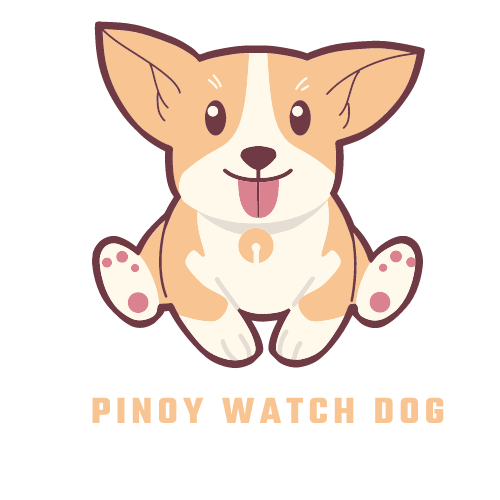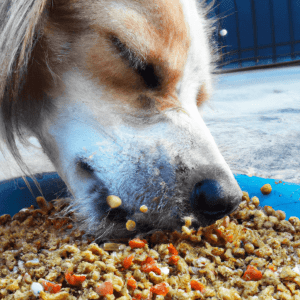Can dog eat squid?
The answer is yes! Squid is a healthy and nutritious seafood option for dogs. It contains high-quality proteins, vitamins, and minerals that can help support a healthy diet for your pup. Squid is also a great source of omega-3 fatty acids, which are important for maintaining a healthy coat and skin.
In addition, squid can help reduce inflammation in your dog’s body and help protect against certain diseases. However, it is important to feed your dog squid in moderation and always check with your veterinarian to ensure it is safe for your pup.
What Nutrients Does Squid Provide for Dogs?
Squid is a great seafood option for dogs that are packed with nutrition. It’s high in protein, low in fat, and is a good source of essential fatty acids like Omega-3 and Omega- 1. It’s also rich in minerals like zinc, selenium, and phosphorus. Plus, it’s a great source of vitamins C and B.
Squid contains all the essential amino acids that your pup needs to maintain muscle mass, build strong bones, and keep its coat and skin healthy. It’s also rich in glucosamine, which helps to support joint health. And because it’s high in protein and low in fat, squid is an ideal choice for pups looking to maintain a healthy weight.
It’s also low in calories, so you don’t have to worry about your pup overindulging. Overall, squid is a great option for dogs and provides essential nutrients that help to keep your pup healthy and happy.
Can Dogs Eat Raw Squid?
No, dogs should not eat raw squid. While squid may be a healthy food for humans, it is not safe for dogs to consume. Raw squid can contain bacteria, including vibrio, which can cause severe illness or even death in dogs. Additionally, squid contains high levels of thiaminase, an enzyme that interferes with the absorption of thiamine, or vitamin B1, which is essential for a dog’s nervous system health.
Furthermore, squid is high in sodium, which can be dangerous for dogs if consumed in large amounts. For these reasons, it’s best to avoid feeding your dog raw squid. If you want to give your pup a seafood treat, it’s best to opt for cooked, boneless fish.
Is Squid a Healthy Treat for Dogs?
Squids can make a great occasional treat for your pup, but there are a few things to keep in mind before you give them to them. For starters, squid is high in protein and low in fat, which is great for your pup’s health. However, squid can be a bit hard to digest, so make sure to cook it thoroughly before feeding it to your pup.
You should also cut it into small pieces to avoid any choking hazards. Another thing to consider is that squid is high in sodium, so you should only give it to your pup as an occasional treat. You should also avoid feeding them squid if they have a history of digestive problems, as the high salt content can exacerbate these issues.
Overall, squid can make a great occasional treat for your pup if it’s cooked thoroughly and served in moderation. Just make sure to keep an eye on them afterward to make sure they don’t have any adverse reactions.
What Are the Dangers of Feeding Dogs Squid?
Feeding your pup squid may sound like a good way to give them a seafood treat, but it can actually be quite dangerous for your pet. Squids can contain high levels of histamine, which can cause an allergic reaction in some dogs. Additionally, squid is very high in fat and can be difficult for your dog to digest.
Overfeeding can lead to digestive issues, including vomiting and diarrhea. If your pup has any underlying health conditions, such as diabetes, feeding them squid could be particularly risky. Additionally, squid can contain toxins, parasites, and other contaminants, which can make your pet sick if ingested.
Overall, while the occasional squid treat is unlikely to hurt your pup, it’s best to avoid feeding them squid regularly. If you do feed your pup squid, be sure to buy it from a reputable source and supervise them while eating.
How to Cook Squid for Dogs?
Cooking squid for your pup is a great way to provide them with a nutritious and tasty meal. Here’s how to do it:
- Clean the squid: Start by making sure your squid is clean. If it’s whole, use a knife to cut the head off and discard it. Then, remove the entrails and discard them. Rinse the squid under cold water and pat it dry with paper towels.
- Cut the squid into pieces: Cut the squid into small pieces so it’s bite-sized for your pup. 3. Boil the squid: Place the squid in a pot of boiling water and cook for about 5 minutes.
- Serve: Drain the water and let the squid cool before serving it to your pup. You can serve it as is, or mix it with some of your pup’s favorite ingredients like cooked rice or vegetables. Enjoy!
Is Squid a Safe Alternative to Fish for Dogs?
Yes, squid is a safe and healthy alternative to fish for dogs. It is a great source of protein and is low in fat, which can help keep your pup’s weight under control. It is also rich in vitamins and minerals, such as selenium and vitamin B-12, which can help keep your pup healthy and provide them with essential nutrients.
Unlike some other types of seafood, squid is also low in mercury, so it is much safer for your pup than other fish. It is also an excellent source of omega-3 fatty acids, which can help keep your pup’s coat looking great and their skin healthy.
However, it is important to note that squid can be difficult to find in some areas, so you may need to shop around to find some. Additionally, squid can be expensive, so it may not be the best choice if you are on a budget. Overall, squid is a safe and healthy alternative to fish for dogs.
It is a great source of protein and nutrients, and it is low in mercury and fat. However, it can be difficult to find and expensive, so you should take these factors into consideration before making a decision.
What Preparation Methods Are Safe for Feeding Squid to Dogs?
When feeding squid to your dog, it’s important to make sure it’s prepared safely so that your pup doesn’t get sick. Here are some safe preparation methods to consider:
- Boiling: Boiling is a great way to prepare squid for your pup. Boil for about 8-10 minutes until the squid is tender.
- Baking: Baking is another safe method to prepare squid for your pup. Preheat your oven to 350°F and bake the squid for about 20 minutes or until cooked through.
- Grilling: Grilling is an excellent way to bring out the flavor of the squid. Grill the squid for about 4-5 minutes on each side until cooked through.
- Sautéing: Sautéing is an easy and quick way to prepare squid for your pup. Heat a skillet over medium-high heat, add some oil, and sauté the squid for about 2-3 minutes until cooked through. Whichever method you choose, make sure the squid is cooked all the way through before giving it to your pup. Enjoy!
What Are the Benefits of Feeding Squid to Dogs?
Feeding your pup squid can be a great way to add variety to their diet and provide them with some awesome health benefits. Here are some of the biggest advantages of feeding your pup squid:
- Rich in Protein: Squid is a great source of lean protein, making it an excellent addition to your pup’s diet. Protein is essential for maintaining healthy muscles, bones, and organs.
- High in Omega-3s: Squid is packed with omega-3 fatty acids, which are essential for your pup’s overall health. These fatty acids can help improve your pup’s skin, coat, and joint health.
- Easy to Digest: Squid is a soft, easily digestible food, so it’s great for pups with sensitive stomachs.
- Great for Training: Squid is an excellent treat for dogs and can be a great reward for training. Overall, feeding your pup squid can be a great way to add some variety to their diet and provide them with some amazing health benefits. Just make sure to always buy fresh squid and feed your pup the appropriate amount.
What Are the Different Types of Squid Suitable for Dogs?
If your pup loves seafood, then squid could be the perfect treat! There are actually a few different types of squid that are suitable for dogs, so let’s take a look at them and their benefits.
- Calamari: This type of squid is the most common and is great for dogs. It’s high in protein and low in fat, plus it’s packed with vitamins and minerals like phosphorus, magnesium, and zinc. Calamari also contains omega-3 fatty acids, which are great for your pup’s coat and skin.
- Cuttlefish: Cuttlefish are similar to calamari, but they are much smaller. They are a great source of protein and contain omega-3 fatty acids. They also have a crunchy texture that most dogs enjoy.
- Loligo Squid: These are the biggest type of squid and are usually sold frozen. They are an excellent source of protein and are full of vitamins and minerals. They are also low in fat and will provide your pup with a healthy and delicious treat.
Whichever type of squid you choose for your pup, make sure it is cooked thoroughly before serving. This will help ensure that it is safe for your pup to eat. Happy snacking!
1 How to Choose the Right Squid for Your Dog?
Choosing the right squid for your dog can be tricky, but it doesn’t have to be. Here are a few tips to help you make the best decision for your pup.
- Consider your dog’s size. If you have a large breed, you’ll need a bigger squid. A smaller breed would need a smaller squid.
- Check the ingredients. Make sure the squid is high-quality, with no added preservatives or artificial ingredients. It should be packed in water or oil, without any added salt or sugar.
- Look for freshness. Make sure the squid is fresh, with no signs of spoilage. Avoid squid that has been sitting on the store shelf for too long.
- Research the brand. Check out reviews and look for any recalls or warnings about the product. It’s always safer to go with a reputable brand.
- Ask for help. If you’re still unsure, talk to your vet or a pet nutritionist. They can help you choose the best squid for your pup’s needs. With these tips, you’ll be able to choose the right squid for your dog in no time. Happy shopping!
In conclusion, it is not recommended for dogs to eat squid as it can be difficult to digest and may contain toxins that could be harmful to their health. Additionally, squid can contain a high amount of salt, which is not beneficial for a dog’s diet. Although some dogs may be able to tolerate eating squid, it is best to consult with a veterinarian before feeding it to your pet.




